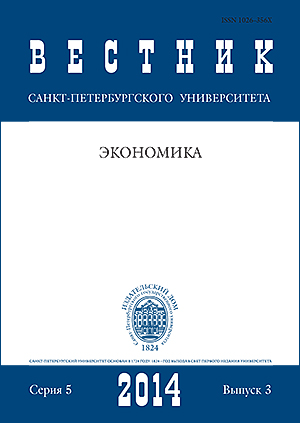Russian-Korean Economic Cooperation: Current Situation and Prospects for Development
Abstract
Trade liberalization, a key component of commitments made by countries entering the WTO, is traditionally expected to generate extra overall trade fl ows between the newcomer and the rest of the international community. Yet relations with individual trading partners might differ, ranging from aboveaverage growth to contraction. To explore these dynamics and to make sense of a concrete and important case, this paper examines general trends and specific peculiarities of Russian-Korean economic collaboration. In a broad socioeconomic context and regarding various types of market economy models, specific trajectories of economic performance—including how Russia’s accession to the WTO might affect Russian-Korean economic cooperation — largely depend upon decisions made by the individual commercial actors. To investigate this issue, the authors interviewed Russian and Korean representatives of academic and business communities, civil servants, and journalists who analyze cooperation between the two countries. Refs 39. Figs 8. Tables 4.
Keywords:
International trading system, Russia’s accession to WTO, Russian-Korean economic cooperation
Downloads
References
References in Latin Alphabet
Translation of references in Russian into English
Downloads
Published
How to Cite
Issue
Section
License
Articles of the St Petersburg University Journal of Economic Studies are open access distributed under the terms of the License Agreement with Saint Petersburg State University, which permits to the authors unrestricted distribution and self-archiving free of charge.






